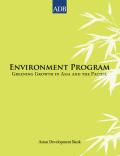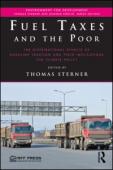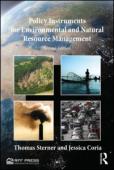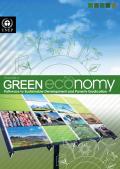
The report, a result of the collaboration between Sustainlabour and the Green Jobs Programme of the ILO, compiles and analyses data on the creation of green jobs in Spain. It includes both current employment data and studies of employment trends.

This book challenges the conventional wisdom that gasoline taxation, an important and much-debated instrument of climate policy, has a disproportionately detrimental effect on poor people. Increased fuel taxes carry the potential to mitigate carbon emissions, reduce congestion, and improve local urban environment. As such, higher gasoline taxes could prove to be a fundamental part of any climate action plan. However, they have been resisted by powerful lobbies that have persuaded people that increased fuel taxation would be regressive. Reporting on examples of over two dozen countries, this book sets out to empirically investigate this claim. The authors conclude that while there may be some slight regressivity in some high-income countries, as a general rule, fuel taxation is a progressive policy particularly in low income countries. Rich countries can correct for regressivity by cutting back on other taxes that adversely affect poor people, or by spending more money on services for the poor. Meanwhile, in low-income countries, poor people spend a very small share of their money on fuel for transport.


The Green Economy Report is compiled by UNEP’s Green Economy Initiative in collaboration with economists and experts worldwide. It demonstrates that the greening of economies is not generally a drag on growth but rather a new engine of growth; that it is a net generator of decent jobs, and that it is also a vital strategy for the elimination of persistent poverty. The report also seeks to motivate policy makers to create the enabling conditions for increased investments in a transition to a green economy.
The report includes chapters on the following areas:
- Agriculture
- Fisheries
- Water
- Forests
- Renewable Energy
- Manufacturing
- Waste
- Buildings
- Transport
- Tourism
- Cities
- Modelling
- Finance
